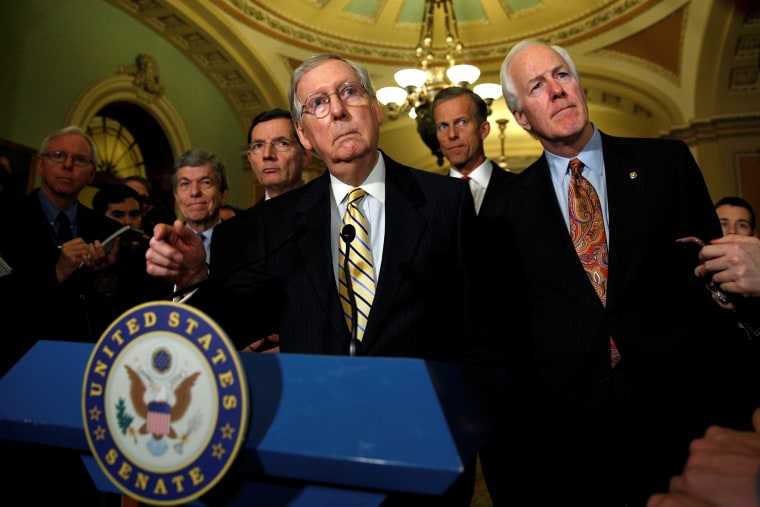For the first two years of the Donald Trump presidency, congressional Republicans made a conscious choice to ignore practically every controversy, forfeiting the institution's oversight responsibilities. Yesterday, White House Press Secretary Sarah Huckabee Sanders effectively conceded the point.
"[T]he first two years were not about oversight," the president's spokesperson told Fox News. "They were about success."
Sanders didn't elaborate -- I'm not sure if one unpopular package of tax cuts for the wealthy constitutes "success" -- though it was reassuring to hear her acknowledge that the GOP-led Congress largely ignored its checks-and-balances duties for the first half of Trump's term.
Capitol Hill is obviously very different in the wake of the 2018 midterms, and the new House Democratic majority is scrutinizing the White House, holding oversight hearings, and asking some challenging questions of the president and his team. But there is a whole other half of Congress that, in theory, could be doing the same thing.
With this in mind, CNN ran a report this week that stood out for me.
President Donald Trump may have committed crimes over a scheme to pay off women alleging extramarital affairs -- but Senate Republicans say they have no reason to look into it.GOP leaders and key committee chairmen are making clear that they believe there is no reason to probe whether the President broke the law in engaging in a scheme to hide payments made to two women to keep their stories quiet in the days running up to the 2016 elections.
The Senate equivalent to the House Oversight Committee is the Homeland Security and Governmental Affairs Committee, which, under Republican leadership, took a keen interest in Benghazi conspiracy theories and Hillary Clinton's emails in recent years. When CNN asked Committee Chairman Ron Johnson (R-Wis.) whether his panel might examine questions surrounding the president personally financing an illegal cover-up, the senator said he's content to let Special Counsel Robert Mueller continue his work.
Mueller, of course, isn't investigating the hush-money scandal.
Reminded of this inconvenient detail, Johnson added, "We'll let the justice system work its way.... I want to see the definitive information as opposed to show-trial type testimony at congressional hearings."
The vigor with which the chairman is looking for "the definitive information" is unclear.
Senate Judiciary Committee Chairman Lindsey Graham (R-S.C.) also signaled disinterest in scrutinizing Trump scandals -- even in the face of possible criminal conduct from the president -- while Senate Finance Committee Chairman Chuck Grassley (R-Iowa) told CNN, "You always ask me questions that I haven't studied. So I can't say."
Looking ahead, I guess we should keep expectations low.
